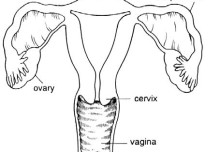
In the circle of life, we all have to deal with loss and grieving. Here are some helpful tips to manage grief.
Holidays and family gatherings can be a particularly challenging time for those dealing with the loss of a loved one, and studies show that more people may actually come face-to-face with the full difficulties of the grieving process in the post-holiday season or after family events. It is during these times, after friends and family have departed and we go back to the daily grind, when we are left with more time to pause, reflect, and engage in the process of grieving we may not have allowed ourselves to endure during the actual family experience.
If you find yourself grieving the loss of a loved one, here are some things you can do to help you process your loss during those times of sadness.
 1. Give yourself time: time to be by yourself, quiet time. With the rush of the holidays behind you, allow yourself this time to do nothing but process the grief.
1. Give yourself time: time to be by yourself, quiet time. With the rush of the holidays behind you, allow yourself this time to do nothing but process the grief.
2. Take care of your physical needs. Eat nourishing foods, as the immune system is compromised with grief. Get enough sleep because grief takes a lot of energy. Exercise, and stay away from things like alcohol, drugs and caffeine whenever possible.
3. Communicate as openly and clearly as you can to your family. Communication is central to this period of transition – not just for the husband and wife, but also for all of the family members.
4. Seek family counseling. Family counseling is a positive and successful approach to helping each other reconnect on an intimate level.
Keeping a journal to write your deepest thoughts and wounds allows you to heal
5. Seek out others who are grieving. This allows the bereaved to be in a space where they can meet others who have experienced the total devastation of loss. I like to call this “meeting at the edge,” where people come together and share strategies, techniques, and visceral understanding.
6. Recognize your vulnerable state and allow yourself normal grieving behavior. You may find yourself sleeping most of the day to escape your grief, or staying up all night watching television or reading in order to distract yourself from the reality of loss. You may return to things you’ve given up such as sugar or coffee, in effort to lower your threshold of pain. It is important to understand both the reasons for this behavior, and that it is normal.
7. Process your grief through contemplation and meditation. The idea of a contemplative practice such as meditation compels us each day to remember that our loved one has died. Along with that knowledge ultimately comes acceptance.
8. Keep a journal or diary. In it, write your deepest thoughts, wounds, and experiences. This allows you to return to the womb for rest, resuscitation, regeneration, and healing, as it helps keep us in touch with what is happening within. How do we feel? How are we doing and what should we do about it?
Grieving is a journey that you make with your lost loved one and those who have been left behind. There comes a point in the process where you must choose to override the fear of transitioning into another stage of life by realizing that you are not letting your loved one go, but rather integrating that person into your present life where he/she will live in the world through you.
_________________________
by Dr. Gail Gross Ph.D., Ed.D.





